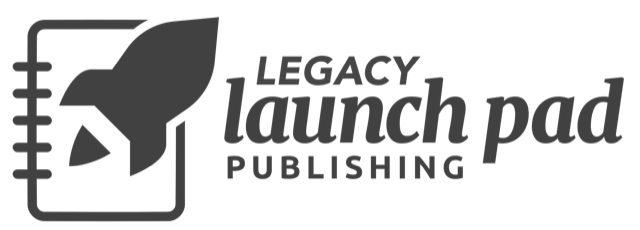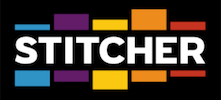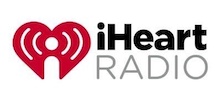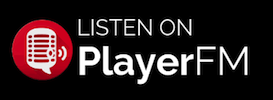
Why It's Better to Sell 100 Books Than 10,000
Traditional publishers lie.
They tell you that you have to sell 10,000 copies of your book for it to be successful.
Or 5000.
Or 1000.
They're wrong. I'd rather sell 100 copies of my book to the right reader than 10,000 copies to readers who won't really care.
In this episode, I explain why.
This is another of the episodes based on the book I'm writing. Speaking of, if you want exclusive stories, resources and info about this book as I write it, you can sign up for that on annadbook.com.
DOWNLOAD THE PODCAST ON ANY PLATFORM HERE
APPLY FOR A CALL TO WORK WITH LEGACY LAUNCH PAD HERE
TRANSCRIPT:

Anna: Hello, and welcome to the podcast that wants you to both be able to be an author and actually pay your rent or pay a mortgage or, and have the life you want. My name is Anna David and I am giving you one of my solo episodes. By the way, it's brought to you by my secret newsletter. You can get on it by going to authority secrets dot club (www.authoritysecrets.club). And if you want the show notes just go to Legacy Launchpad Pub dot com slash blog slash one hundred (www.legacylaunchpadpub.com/blog/100). The actual numbers 1-0-0. And that's because this episode, which is based on the book that I have coming out April 23rd, is all about how selling 100 copies of your book can change your life. AKA, it's better to sell 100 copies to the right readers whose lives are going to be changed, who may hire you, than 10,000 readers who simply won't care. This is also about how, have they been lying to you? They, those evil they! They have been telling you it's all about making the New York Times list, it's all about selling 10s of 1000s of copies, it's all about book tours. It's no, it's not. Robert Greene told me when I interviewed him for this podcast, your book could have sold 11 copies over the course of 10 years. But you can show it to people and they're impressed. That's of course, only if it's a very high quality book. Chris Voss said on the podcast, even if the only people that actually pay for copies are your parents, there's no better marketing tool or calling card than a book. It becomes the most viable business card you've ever had.
Now this is something I experienced firsthand every year when I go to my mentor Joe Polish’s Genius Network event. So I have talked about this on the podcast before, but in case you've never heard it or you feel like hearing it in a new way. I wrote my book Make your Mess Your Memoir with this couple in mind. It's this couple that I know from Genius Network. I've always loved them. They're like my surrogate parents, but they don't, they're not old enough to be my surrogate parents. But it doesn't matter. Surrogate. You're making it up, you know what I mean? And, um, I talked to them about, about them hiring my company to do a book. And so my book, Make Your Mess Your Memoir, every page, I thought about them. I thought like, I thought like, would they like that? Would that be too much for them? Would that shock them? Would that speak to them? And I finished the book and they never read it. I didn't tell them about it. I mean, I super liked them. But I don't see them all that often. Lots and lots of other people just like them did hire my company, we brought in 100s of 1000s of dollars in new business. So time passes and I run into them at the Genius Network annual event. And I go, oh my God, I have this funny thing to tell you. I wrote this book for you. Basically, I was like, I’m on Good Morning America with it. It was great for my business and they go what? And it happened to be at the gifting suite that was there at Genius Network. And so they went and they picked up a copy. And by the way, now we're working with them. They hired us.
My point is that, um, I knew what I wanted with that book. My why was a want to show successful entrepreneurs, thought leaders, business owners, CEOs, founders, that a book will be the best business card they could possibly have. How can I share this with them in a way that's entertaining? And because I had that why, because I had that intention throughout, it didn't matter to me if 10s of 1000s of people bought the book. When I was on Good Morning America, I went and looked at Amazon. My Amazon number didn't change that much. But the people who saw it, who ended up hiring me, that's who matters.
Now Rich Goldstein, who's a patent attorney I've had on the podcast has a method. He says he just offers the book for free to anyone who requests it. I was at an event with him in Vegas a couple months ago. And he had his office FedEx copies in for everyone there. It's worth the expense, the trouble, whatever it is, because people read it and then they go, oh, I want to hire, this guy really knows. He wrote the book on the topic. I want to hire him. So Rich was very into Clubhouse. Remember Clubhouse, late 2020, early 2021? And so he would go on Clubhouse, talk about startup rooms, about patent attorneys in, you know, getting patents and all of these things and he would always just say, hey, if you want a free copy of my book, just email me or message me or sign into my DMs or whatever. And he said he got over 100 book requests and landed at least five clients just from like a couple months on Clubhouse. Now depending on how much you've charged for a client that that can be a really big deal.
Alan Weiss, who's the author of Million Dollar Consulting suggests -- and I recommend this to everybody -- if you have a business book and you know your ideal client, send them a copy of the book but actually send them two copies. Sign both. Put both in the mail. Now the rationale is every potential client you know knows another potential client and people are not very likely to throw away signed books. So that potential client will probably give the second copy to someone else who could be a potential client. And I'll tell you I went to one of Alan Weiss's seminars in New York a couple years ago. And he put this big, you know, those, they're not whiteboards, they're like those big notebooks kind of that you put at the front of a room. And he went around the room and he said, how did you hear about me, originally? Now this was a, this was a conference that costs about $1000 to go to. So he goes around the room, there's, you know, 80 people in the room. And he goes, how did you first hear about me so that made you end up here? And everybody, and as soon as someone said what it was, he wrote it on the poster, or on the notebook page, and it was, you know, I read your book, I saw one of your videos, I heard about you from blah, blah, blah, I saw you on a web search, whatever it is. Everybody. What dwarfed every other response was book, including me. That's how I discovered, oh, I heard him on a podcast and then I read his book. And then I signed up for his conference. It is, um, and I will put in the show notes, I took a picture of that poster at the time. Because I was like, that is fascinating. I'm going to want to remember this. So go to the show notes, you'll see what I'm talking about in case I'm not explaining it super well.
Now another kind of person that you want to read your book is a teacher, as Rob Fitzpatrick told me when he came on the podcast. If a book gives teachers tools they can use, they don't recommend it to five people, they recommend it to 5000. They're hungry. If they read it and think here's a new framework or here's a new tool or concept, they know you can use it in their classes. Rob has been incredibly successful at that with his book, The Mom Test. And, and it's something that, that obviously, not every topic lends itself to course material. But especially if you're, you're like, say a Gen X-er like me. College has changed a lot since I went in the 90s when I went to a liberal arts school, which is basically another way of saying you can't major in anything useful. Now people can major in all sorts of things where… I love college professors, love them deeply. Sometimes they really have no idea what's happening in the real world. And your book could absolutely help people in ways that typical course material wouldn’t. So you don't also have to be a book that is used in a course for it to be relevant for the educational market.
Alex Strathdee, for his first book, which was basically he wrote it with his friend right when they were out of college. And it basically said, like, you're totally unprepared for the real world. And he knew that college students, people graduating from college needed to read this book, but he didn't know how to get it to them. So weekend after weekend, he'd sit in coffee shops, and he'd web scrape 1000s of email addresses of college administrators. And he emailed each, offering the book for free to their students. So out of that, 50 schools got back to him. And 11 agreed to distribute the e-book to their students. And through that they got their book in front of 40,000 students. But still, they weren't making money. They were giving it to the, the schools who are giving it to their students. So then they thought, well, this is wonderful. We like eyeballs but how can we actually monetize this? And so in the same way that they compiled the list of 3000 University contacts, they compiled another list. This one was of the email addresses of over 200 different companies they thought would want to hire those college seniors. And then they went and they offered them ad space in the book. He said, Alex said, we essentially turned our book into a product and they ended up landing six advertisers including Kohl's who paid $1000. So it made them not only enough money to pay for what they'd invested in the book, but also enough to support them in launching their first two companies. So you also can have a course that you link to in the book.
Pat Flynn's book Will It Fly?, he links to a free course he created throughout the book, and it's not, you know, I read the book. It didn't feel like you're being hammered with this thing. It just was mentioned when it was relevant. And I had Dave Chesson on the podcast and he helped Pat Flynn with his launch and he shared about this. What Pat did is he emailed those people who signed up for the free course, invited them to a paid course that built on what was in the free course. And from just that alone, he made $111,000. So that's not from his whole list, that is just from the list of people who signed up for the free course and then bought the paid course from the book. Then I had Mike Koenigs on the podcast, and he talked about how he made seven and a half million dollars from one book. You got, I'm gonna link to all these episodes. And you know, it's very, Mike Koenigs is the best salesperson I know. But basically the book led people to, into a funnel that included a live webinar that included a live of them that included a way to create a product for them. And you know, in the way he talked about it is you're attracting people to your book, and then you're inviting them. You're saying, do you want to know more about this topic? And when they say yes, if you continue to invite them to learn more in a way that is going to benefit them and they are your right reader and right client, it is an everybody wins situation. So that is my episode on why it is better to have 100 of the right readers than 10,000 of the wrong ones. And I'll see you next time.
















